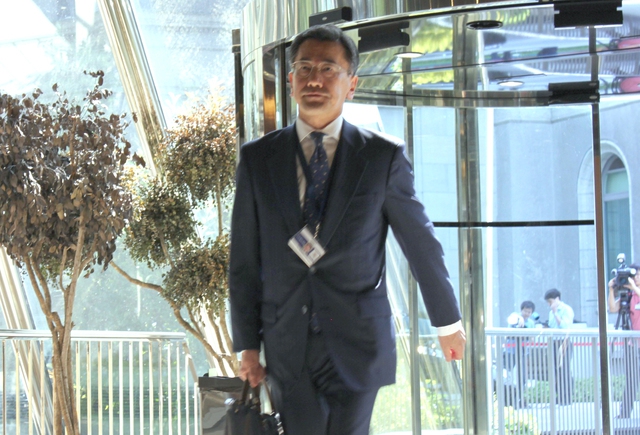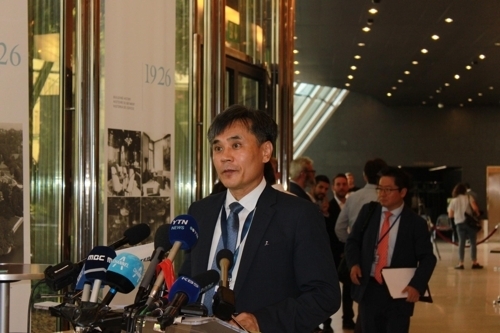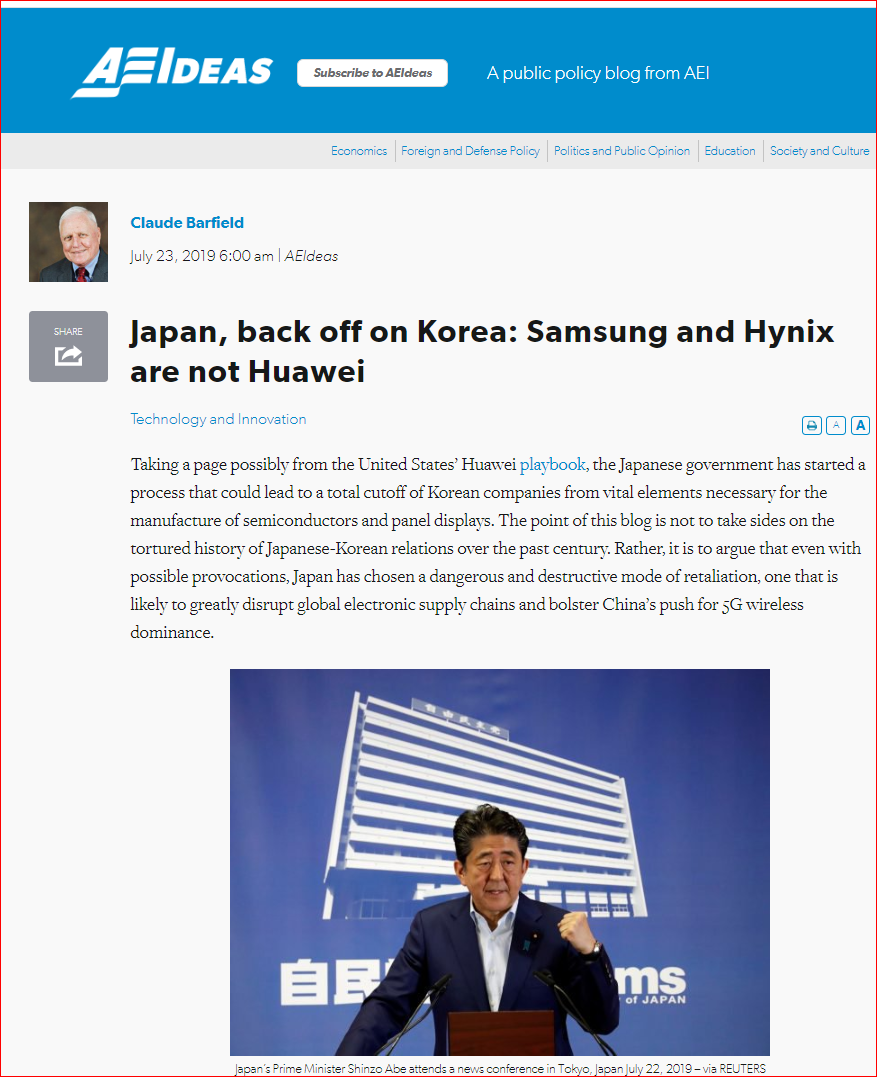Posted on : Jul.26,2019 15:46 KST
Modified on : Jul.26,2019 16:12 KST
 |
|
Shingo Yamagami, the director-general of economic affairs at Japan’s Ministry of Foreign Affairs, prepares to enter the WTO General Council in Geneva, Switzerland, on July 24. (Yonhap News)
|
The World Trade Organization’s (WTO) General Council in Geneva on July 24 saw sparring between South Korea and Japan over Japan’s restrictions on exports to South Korea. While the South Korean delegation asserted that Japan’s export restrictions were a violation of trade norms and the Japanese delegation offered a rebuttal, representatives of other countries at the council, including the US, apparently didn’t express their positions. The South Korean government is preparing to lodge an official complaint against Japan with the WTO, based on the assumption that it’s winning the sympathy of the international community.
There were disturbing aspects in the attitude that Japan exhibited at the council meeting on Wednesday, which was a crucial moment in the two countries’ battle for international public opinion. For example, Japan’s remarks during the meeting were made by Junichi Ihara, ambassador to Geneva, who is one rank lower than the person Japan had originally designated as its representative: Shingo Yamagami, the director-general of economic affairs at Japan’s Ministry of Foreign Affairs. It also Ihara who spoke at the press conference while his senior remained silent. These changes appear to have been aimed at belittling the significance of the council. This attitude can also be detected in Ihara’s claim that “this matter doesn’t deserve to be discussed by the WTO.” Japan appears to have unwittingly revealed its lack of a legitimate logical argument to back the export controls.
 |
|
Kim Seung-ho, deputy minister of the office of international trade and legal affairs at South Korea’s Ministry of Trade, Industry, and Energy, holds a press conference following the World Trade Organization (WTO) General Council in Geneva, Switzerland, on July 24. (Yonhap News)
|
Japan also disregarded the South Korean government’s proposal for face-to-face high-level deliberations, not even dignifying it with a response. That was why Kim Seung-ho, deputy minister of the office of international trade and legal affairs at South Korea’s Ministry of Trade, Industry, and Energy, criticized Japan for “closing its eyes and ears” in a meeting with reporters following the discussion at the council. If the Japanese government were in the right, it would have no reason not to agree to the South Korean government’s open proposal for dialogue.
The Japanese government mustn’t ignore the growing criticism in the international community about its export controls on three materials used in the manufacture of semiconductors and displays and on the steps it’s taking to remove South Korea from the “white list” of countries who are granted expedited export screening. Japan is taking heat from foreign media outlets such as the New York Times, organizations representing the leaders of US electronics firms, and even conservative-leaning think tank the American Enterprise Institute, which recently made a post on its website titled, “Japan, back off on Korea: Samsung and Hynix are not Huawei.”
“There are concerns that further aggravation of the situation by Japan could have unexpected consequences,” warned South Korean Prime Minister Lee Nak-yeon on July 25 during the meeting of a government committee reviewing current issues, while also calling for dialogue. “We’re preparing for diplomatic deliberations,” Lee said.
Our hope is that Japan will respond to this and resolve the issue through negotiations. Japan needs to face the reality that, if it sticks to the export controls and goes ahead with removing South Korea from the white list, it could damage not only these two countries that are linked by the global supply chain but also the global economy as a whole.
Please direct comments or questions to [english@hani.co.kr]











